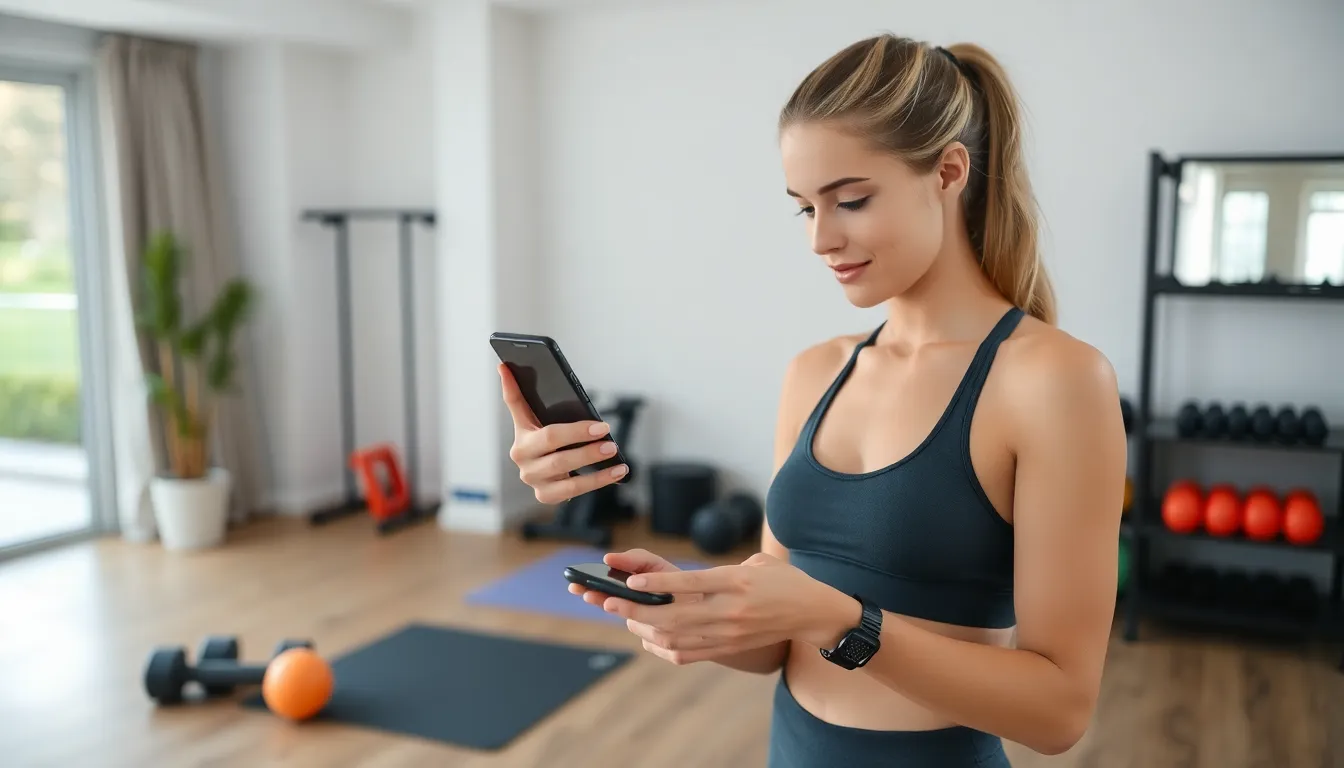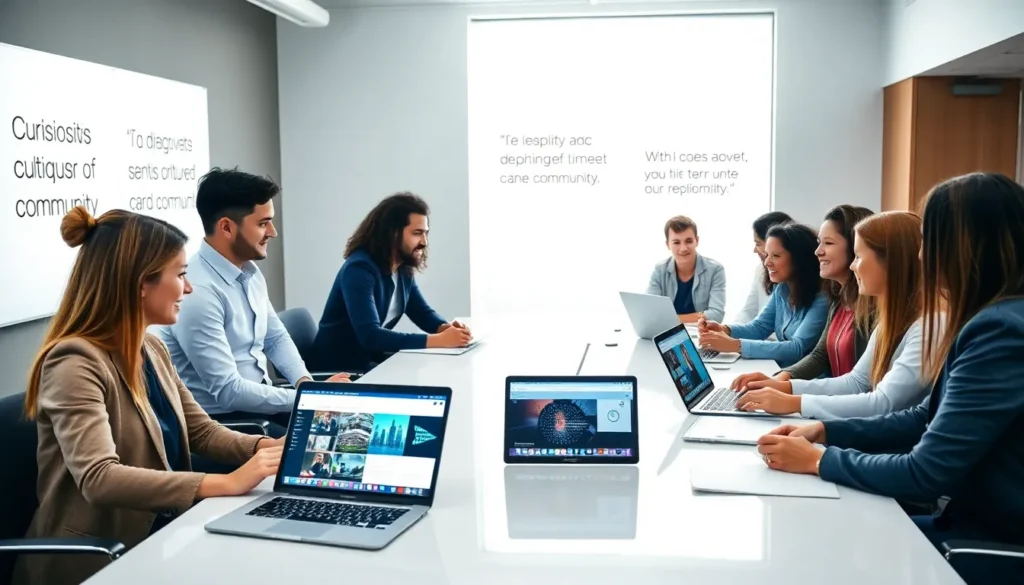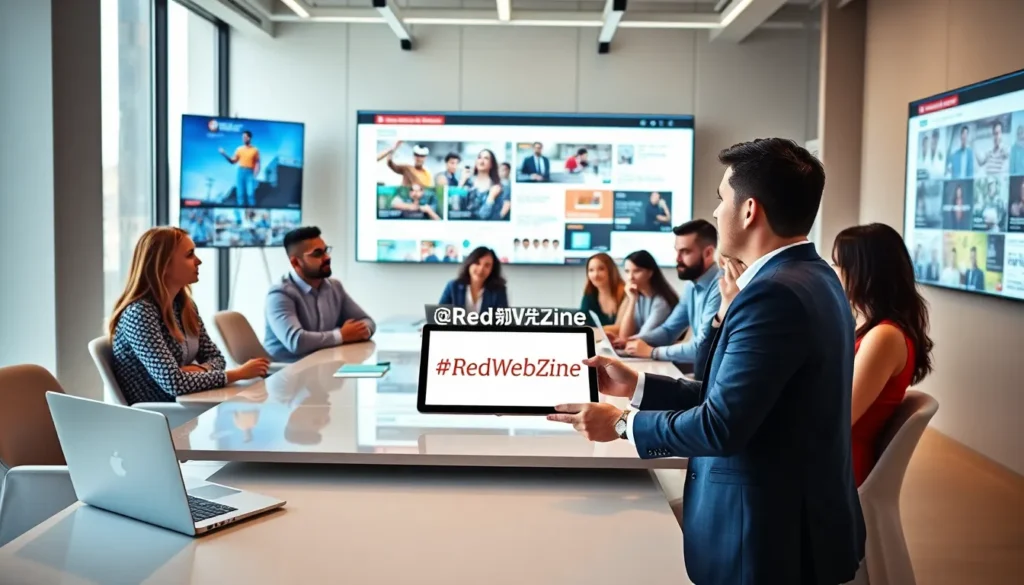In a world where convenience reigns supreme, mobile apps for healthcare are the superheroes we never knew we needed. Forget waiting in line at the doctor’s office; now, a quick tap on a screen can connect patients to their healthcare providers faster than you can say “prescription refill.” These apps are revolutionizing how people manage their health, making it easier to track everything from workouts to vital signs—no cape required.
Imagine having a personal health assistant in your pocket, ready to remind you to take your meds or log that kale smoothie. It’s like having a wellness coach who doesn’t judge your late-night pizza cravings. As technology continues to evolve, these mobile solutions are not just a trend; they’re becoming essential tools for better health management. So, let’s dive into the world of healthcare apps and discover how they can transform lives—one download at a time.
Table of Contents
ToggleOverview of Mobile Apps for Healthcare
Mobile apps for healthcare significantly enhance patient convenience and streamline communication between users and healthcare providers. These applications facilitate quick access to medical advice, reducing the need for time-consuming office visits. Users benefit from features like appointment scheduling, telemedicine consultations, and secure messaging with healthcare professionals.
Tracking personal health metrics stands out as a crucial function of these apps. Many users utilize them for monitoring vital signs, managing chronic conditions, or establishing fitness goals. Numerous applications offer reminders for medication, ensuring adherence to prescribed regimens and improving overall health outcomes.
Data management becomes more straightforward with mobile health apps. Users can maintain personal health records, access test results, and receive tailored health recommendations based on individual health profiles. Such capabilities allow individuals to take a proactive approach to their health and wellness.
Health education materials also find a place in these applications. Many mobile apps provide articles, videos, and infographics on various health topics, empowering users to make informed decisions. Some applications even offer interactive tools, like symptom checkers or health assessments, allowing users to evaluate their conditions effectively.
The integration of wearable technology further enhances functionality. Users can sync data from devices such as fitness trackers or smartwatches, providing a comprehensive view of their health. The real-time data collected helps healthcare professionals make informed decisions and adjust treatment plans accordingly.
Mobile apps for healthcare are evolving rapidly, integrating advanced technologies like artificial intelligence and machine learning. These tools can analyze user data, offering personalized insights and recommendations. Such innovations position these applications as pivotal in modern health management, transforming how individuals engage with their health.
Types of Mobile Apps

Mobile apps for healthcare come in various types, each designed to address specific needs and enhance user experience. Below are key categories of these applications.
Fitness and Wellness Apps
Fitness and wellness apps support users in reaching health goals. They track exercise routines, monitor calorie intake, and provide guided workouts. Users can connect with communities that encourage accountability and motivation. Many of these apps allow customization, tailoring plans to individual fitness levels. Examples include MyFitnessPal and Fitbit, both popular for their user-friendly interfaces and robust tracking features.
Telemedicine Apps
Telemedicine apps revolutionize how patients access healthcare services. They enable video consultations, allowing users to speak directly with healthcare providers from their homes. Immediate access to professionals helps streamline care for non-emergency issues. Many of these platforms also facilitate prescription refills and follow-up appointments. Notable examples are Amwell and MDLive, both recognized for their convenience and efficiency in connecting patients with doctors.
Medication Management Apps
Medication management apps simplify the process of tracking medication schedules. They send reminders for doses, helping users adhere to their prescriptions. Some applications allow users to scan medication labels for easier tracking and information retrieval. Many offer features such as drug interaction alerts and refill notifications. Popular choices include Medisafe and Pill Reminder, both effective in promoting adherence and ensuring safe medication practices.
Benefits of Mobile Apps in Healthcare
Mobile apps revolutionize healthcare by enhancing user experiences and improving health outcomes. They provide tools that empower individuals in managing their health effectively.
Improved Patient Engagement
Mobile apps foster improved patient engagement by offering interactive features that encourage active participation. Users can access personalized health data, motivating them to make informed decisions. Regular updates and notifications keep users informed about their health progress, enhancing accountability. Gamification elements found in some apps, like challenges and rewards, promote adherence to health goals. Patients may connect with healthcare professionals in real-time, facilitating discussions about treatment plans or health concerns. These features create an environment where patients feel supported and engaged throughout their healthcare journeys.
Enhanced Accessibility to Care
Mobile apps enhance accessibility to care by bridging the gap between patients and healthcare providers. Users can schedule appointments with just a few taps, eliminating lengthy waiting periods. Telemedicine features allow for instant consultations, providing access to professionals regardless of geographic location. Users receive timely medical advice and prescriptions without the need for unnecessary office visits. Furthermore, fitness and wellness apps cater to users looking for preventative care and lifestyle management, ensuring a holistic approach to health. This increased accessibility transforms the way patients interact with their healthcare system, tailoring experiences to individual needs.
Challenges and Considerations
Mobile healthcare apps present unique challenges and considerations that developers and users must navigate. Addressing these factors ensures effective utilization and safety in health management.
Privacy and Security Concerns
Data breaches pose significant risks to the confidentiality of sensitive health information. Regulations like HIPAA establish stringent requirements for protecting patient data, yet vulnerabilities persist in mobile applications. Users frequently express concerns about unauthorized access and data misuse. Secure authentication methods and encryption practices remain vital to safeguard personal health records. Developers should prioritize security features, ensuring compliance with legal standards and maintaining user trust. Updating security protocols regularly helps mitigate emerging threats, fostering a safe environment for app users.
User-Friendly Design
An intuitive user interface is crucial for app effectiveness and user engagement. Designs that emphasize simplicity enhance navigation and accessibility. Users often prefer interfaces that enable quick access to features without overwhelming complexity. Prioritizing clear layouts and easy-to-understand instructions increases user adoption rates and satisfaction. Testing designs with real users helps identify pain points, allowing for improvements and refinements. Ensuring compatibility with various devices and operating systems also enhances usability, catering to a wider audience.
The Future of Mobile Apps in Healthcare
Mobile apps are set to revolutionize healthcare delivery. Increased integration of artificial intelligence offers personalized health insights tailored to individual needs. Wearable technology plays a crucial role, allowing seamless data syncing across various health devices. Such advancements enhance the overall user experience by providing a comprehensive overview of personal health metrics.
Telemedicine apps have already changed how patients access healthcare. Video consultations became common for routine check-ups, enabling instant access to healthcare providers. Users appreciate the convenience of scheduling appointments at any time from their smartphones. Medication management apps further streamline this interaction by sending reminders and alerts related to medication adherence.
The potential for health education through mobile apps continues to expand. Users can access a wealth of resources, from informative articles to interactive tools. Gamification elements encourage engagement and motivation, fostering a sense of community among users.
Security and privacy remain paramount as these apps evolve. Developers must comply with regulations like HIPAA to protect sensitive information. Emphasis on user-friendly designs enhances navigation, promoting continued usage. Regular testing with real users identifies areas for improvement, ensuring apps meet diverse needs.
Data management capabilities also improve. Users can store personal health records, access test results, and receive tailored health recommendations in one place. Access to this information empowers individuals to make informed health decisions and take charge of their wellness journey.
Innovative mobile applications aim to bridge the gap between healthcare providers and patients. Commitment to enhancing accessibility in healthcare transforms patient experiences, leading to better health outcomes. This trajectory indicates a promising future for mobile apps in healthcare, reinforcing their role as integral tools for health management.
Mobile apps are redefining the healthcare landscape by making health management more accessible and personalized. They empower users to take charge of their health through features that streamline communication with providers and enhance engagement in wellness activities. As technology continues to advance, these applications will likely become even more integral to everyday health routines.
The ongoing integration of artificial intelligence and wearable technology will further enhance the user experience. However, the importance of security and user-friendly design cannot be overstated. By prioritizing these elements, developers can ensure that mobile healthcare apps remain trustworthy and effective tools for improving health outcomes. The future of healthcare is undoubtedly mobile, and its potential is just beginning to unfold.









